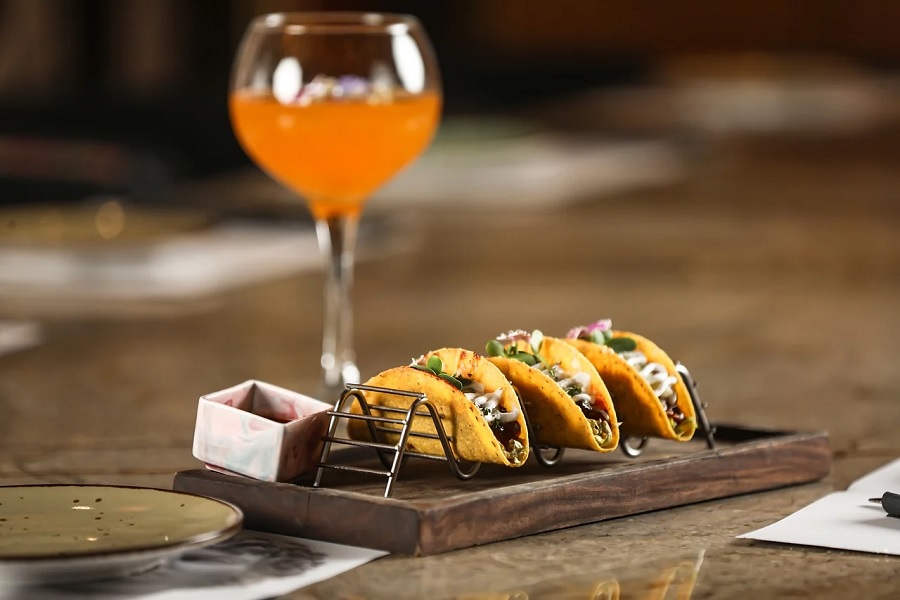Food and Beverage Tourism: The Growing Role in the Tourism Industry

Food and beverage tourism has become an increasingly popular trend, driving tourism growth and enhancing cultural experiences across the globe. This unique form of tourism focuses on exploring new destinations through the lens of local cuisine, beverages, and culinary traditions. Whether it’s savoring authentic street food, visiting vineyards for wine tastings, or indulging in fine dining experiences, food and beverage tourism offers travelers an immersive way to connect with local culture, history, and the people who shape these culinary landscapes.
The Role of Food and Beverage in Tourism
Cultural Experience: Food is often the heart of a culture. Through local dishes, recipes, and preparation methods, travelers gain insight into a destination’s heritage, traditions, and way of life. For example, exploring sushi in Japan or tasting authentic pasta in Italy brings travelers closer to the essence of those countries.
Economic Impact: The food and beverage sector is one of the largest contributors to the tourism industry. Culinary tourism drives economic growth by supporting local restaurants, food markets, wineries, and breweries, creating jobs and boosting tourism-related revenues.
Destination Branding: Many destinations are now known for their unique food experiences. Cities like Paris, Barcelona, and Bangkok have become synonymous with their distinctive culinary offerings, attracting millions of food-loving tourists every year. These destinations leverage their food culture as a key aspect of their branding and marketing.
Sustainable Tourism: Food tourism promotes sustainability by encouraging local sourcing and farm-to-table experiences. Many destinations focus on showcasing sustainable farming practices, organic foods, and environmentally-conscious restaurants, supporting both tourism and local economies while protecting the environment.
Gastronomic Events: Festivals and food-related events are crucial in attracting tourists. Events such as the Munich Beer Festival, New Orleans’ Mardi Gras, or Italy’s wine festivals highlight the intersection of food, culture, and tourism. These events not only celebrate culinary arts but also provide a unique platform for local businesses to showcase their offerings to international audiences.
Top Food and Beverage Tourism Destinations
Italy: Known for its world-famous cuisine, Italy offers culinary experiences in every region, from pasta-making classes in Bologna to wine tours in Tuscany.
France: French cuisine is celebrated worldwide, and destinations like Paris and Lyon offer gourmet tours, cheese tastings, and patisserie experiences that attract food lovers from all over.
Thailand: Thailand is a hotspot for street food lovers. Cities like Bangkok and Chiang Mai are known for their vibrant street food scene, where tourists can sample a wide variety of dishes, from spicy curries to freshly made noodles.
Mexico: Mexico offers an explosion of flavors, from tacos and tamales to mole sauces. Regions like Oaxaca are famous for their culinary offerings, including traditional markets and mezcal tastings.
Japan: Japan is famous for its sushi, ramen, and sake. Visitors can enjoy food tours that highlight local delicacies, traditional cooking techniques, and food culture that is deeply ingrained in the country’s history.
How Food and Beverage Tourism Promotes Sustainable Travel
Food tourism is increasingly linked to sustainability. By supporting local, small-scale producers and food artisans, tourists contribute directly to local economies and help preserve local food traditions. Additionally, many food-related tours emphasize responsible eating, including promoting plant-based diets and showcasing sustainable seafood practices.
Tips for Experiencing Food and Beverage Tourism Responsibly
Support local businesses: Choose locally-owned restaurants, markets, and producers to contribute to the community.
Choose sustainable options: Look for eco-friendly practices like farm-to-table dining or restaurants that emphasize locally-sourced ingredients.
Respect local cultures: Learn about and respect the culinary customs of the region you’re visiting, understanding that food is often tied to cultural practices and traditions.
Food and beverage tourism offers more than just a chance to eat—it’s an opportunity to experience the culture, history, and community of a destination. As food continues to shape travel, it plays a significant role in making tourism more sustainable and enriching.













.jpg)





